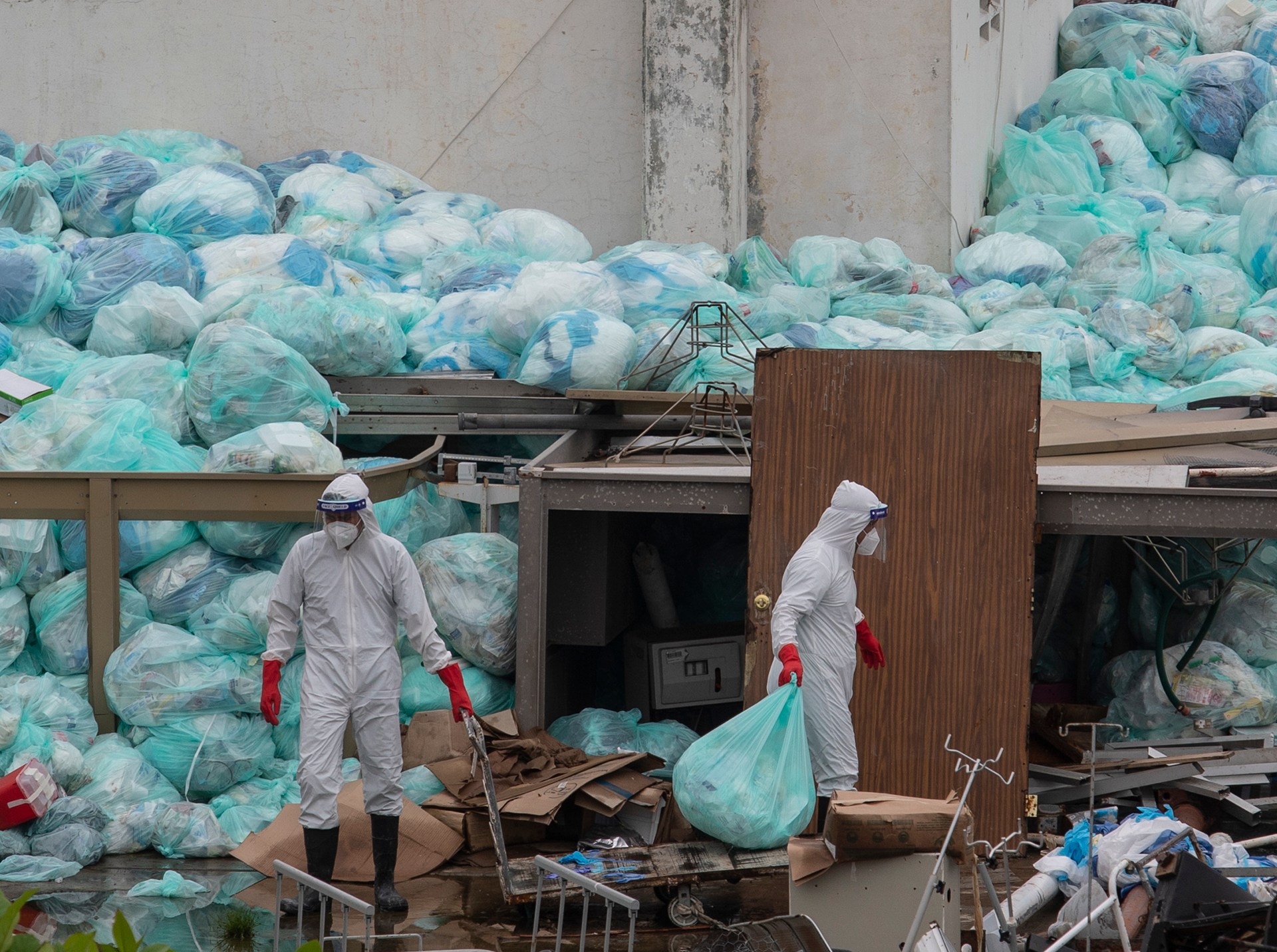The Value of Proper Garbage Disposal Practices
From the consequences of improper waste disposal on our environment to the lasting effects for future generations, the value of embracing lasting waste monitoring practices can not be overstated. By discovering the ecological effect of untrustworthy waste disposal, the benefits of recycling campaigns, and the relevance of community engagement in waste reduction efforts, a much deeper understanding of why proper waste disposal practices are critical arises.
Environmental Impact of Improper Disposal
Improper disposal of waste positions a considerable danger to the setting as a result of its detrimental effects on communities and human health and wellness. When waste is not effectively taken care of, it can lead to pollution of the water, air, and soil, creating injury to numerous plant and pet types. click here. Chemicals and toxic substances from incorrectly disposed waste can seep into the ground, polluting groundwater resources and influencing the wellness of both wild animals and human beings
Furthermore, the accumulation of waste in garbage dumps creates greenhouse gases like methane, adding to environment modification and worldwide warming. Incorrect disposal methods also cause littering, which not only deteriorates the aesthetic value of the atmosphere but can also harm wild animals via consumption or complexity.
To alleviate these environmental influences, it is important for individuals and areas to embrace proper waste disposal techniques such as reusing, composting, and accountable dangerous waste disposal. By taking these steps, we can help shield ecological communities, protect natural deposits, and safeguard human health and wellness for future and current generations.
Benefits of Recycling Programs
On a regular basis taking part in recycling programs uses numerous advantages for both the setting and society as a whole. This preservation of sources not only helps in preserving ecological balance yet likewise adds to sustainable advancement.
Moreover, reusing plays an essential duty in lowering power intake and greenhouse gas emissions. The manufacturing of items from recycled materials typically needs much less power contrasted to manufacturing from virgin resources - medical waste removal service. As an outcome, the carbon impact linked with the production procedure is dramatically reduced, assisting in the battle versus environment adjustment
In addition, reusing programs create job chances in the recycling industry, promoting economic growth and social welfare. By motivating the recycling and reuse of materials, these programs support a circular economic situation that decreases waste generation and makes best use of source performance, ultimately bring about a cleaner, greener future for generations to come.
Hazardous Waste Management Guidelines
Implementing effective hazardous waste management guidelines is vital for decreasing ecological and wellness dangers connected with the incorrect disposal of unsafe materials - click here. Appropriate handling, therapy, and disposal of contaminated materials are important to prevent contamination of soil, water sources, and air
One key guideline appertains labeling of contaminated materials containers to guarantee safe handling and transportation. In addition, centers have to comply with stringent storage requirements to avoid leaks, spills, or accidents that can jeopardize human health and wellness and the setting. Routine training programs for workers on dangerous waste management techniques are additionally essential to make sure compliance with policies and advertise a society of security.
Additionally, hazardous waste should be set apart based on its buildings to stop chemical reactions that could cause hazardous circumstances. Applying an extensive waste radar can aid keep track of the movement of harmful materials from generation to disposal, ensuring openness and accountability. By adhering to these guidelines faithfully, services and industries can add to a much safer and cleaner setting for present and future generations.
Community Involvement in Waste Decrease
To properly address the environmental and wellness risks connected with dangerous waste monitoring, engaging the neighborhood in waste decrease initiatives is critical. Area involvement plays a vital role in promoting lasting waste management methods and cultivating a society of environmental duty. By educating locals regarding correct waste segregation, recycling, and composting methods, areas can significantly minimize the quantity of waste sent out to landfills, thus lessening ecological pollution and conserving natural sources.
Area engagement in waste decrease programs also assists in increasing recognition concerning the importance of waste minimization and motivates individuals to take on green habits in their daily lives - medical waste removal. Collaborative efforts between local authorities, waste management business, and community members can result in the execution of effective waste reduction techniques tailored to the specific demands of each area or community
Moreover, area engagement cultivates a feeling of ownership and responsibility among homeowners, equipping them to take positive steps towards lowering waste generation and advertising a cleaner, healthier environment for existing and future generations. By interacting in the direction of usual waste reduction goals, areas can make a significant influence on reducing the negative effects of inappropriate garbage disposal methods.

Future of Sustainable Waste Practices
Typical waste disposal techniques, such as landfilling and incineration, are no longer sustainable in the long term due to their significant environmental impacts. Relocating ahead, the future of sustainable waste methods lies in accepting a circular economic situation strategy, where resources are reused, reused, or repurposed to minimize waste generation.
Technological developments play a crucial function fit the future of sustainable waste methods. Advanced waste sorting and reusing technologies can assist improve the performance of waste administration processes, enabling the recuperation of beneficial sources from waste streams. In addition, the fostering of naturally degradable products and composting techniques can aid lower the quantity of organic waste winding up in landfills, therefore minimizing greenhouse gas exhausts.
Moreover, promoting consumer recognition and education and learning on appropriate waste partition and disposal techniques is crucial for driving behavior modification check here in the direction of sustainability. By promoting a culture of waste recycling, decrease, and reuse, neighborhoods can jointly add to a cleaner and healthier environment for future generations.

Conclusion
Finally, proper waste disposal methods are essential for decreasing ecological impact and advertising sustainability. By applying recycling programs, handling harmful waste properly, and encouraging neighborhood participation in waste decrease initiatives, we can work towards a cleaner and healthier atmosphere. It is vital for federal governments, services, and people to focus on sustainable waste methods for the future wellness of our world.
.jpg)
From the consequences of incorrect waste disposal on our environment to the long-term effects for future generations, the significance of adopting lasting waste administration methods can not be overemphasized. By discovering the ecological effect of careless waste disposal, the benefits of reusing campaigns, and the value of neighborhood engagement in waste reduction efforts, a much deeper understanding of why appropriate waste disposal methods are essential emerges.
By enlightening citizens regarding correct waste partition, reusing, and composting methods, areas can dramatically minimize the amount of waste sent out to garbage dumps, thereby lessening ecological air pollution and conserving all-natural resources. (click here)
Relocating onward, the future of lasting waste practices exists in welcoming a circular economic situation technique, where resources are reused, recycled, or repurposed to lessen waste generation.
Advanced waste sorting and recycling technologies can assist boost the efficiency of waste administration processes, enabling for the recuperation of important resources from waste streams.